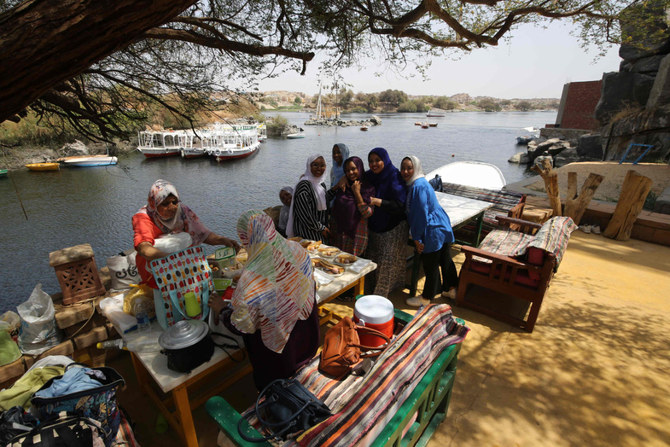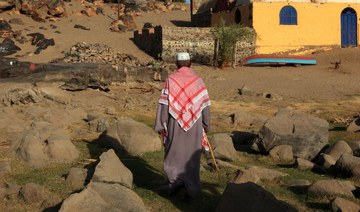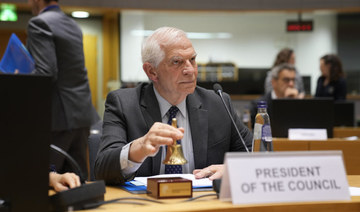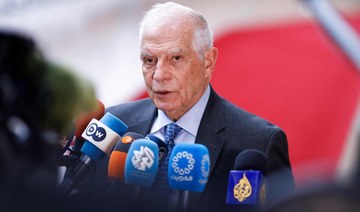ASWAN, Egypt: Thousands fleeing war in Sudan have taken refuge in the Egyptian city of Aswan on the Nile, where families are helping keep the tourism industry afloat far from the horrors they left behind.
“We finally made it to Aswan,” said Hisham Ali, 54, who reached Egypt after an odyssey that took his family south of the fighting in Khartoum, before heading over 1,000 kilometers (600 miles) north again to the Egyptian border.
Thousands of people have been stuck there since Egypt tightened its visa rules in July.
“Aswan is beautiful, its people are kind,” the former government employee told AFP from a rest house in the popular holiday destination.
During the winter months, the city fills with Egyptian and international travelers — drawn by the abundance of Pharaonic sites, views of the Nile River and warm weather.
When Sudanese families began arriving in April, the city’s many boat captains and business owners were winding down for the low season in the summer heat.
They did not expect an influx of refugees, or the much-needed business they have brought to Egypt’s struggling economy.
“I’ve taken my family for a fun day out, I want them as much as they can to forget the days of war and bombs and air strikes and gun shots,” Ali said, as the sound of children playing rang out around him.
Around 310,000 people have crossed from Sudan into Egypt since war broke out on April 15 between the forces of army chief Abdel Fattah Al-Burhan and the paramilitary Rapid Support Forces, led by his former deputy Mohamed Hamdan Daglo.
“We fled Khartoum three months ago,” said Zeinab Ibrahim, 30, after two months of sheltering from constant air strikes, artillery fire and street battles.
“I was pregnant and there were no hospitals left where I could give birth,” she told AFP of the situation in Sudan, where 80 percent of hospitals are out of service, according to the United Nations.
After crossing the Egyptian border, many continued the journey north to the capital Cairo, while others like Ali and Ibrahim stayed in Aswan, Egypt’s southernmost major city and one of its most popular tourist destinations.
In the middle of an early September heatwave, when many boat captains would have laid anchor in past years, their flat-bottomed vessels weaved through Nile islands instead, blasting music while daring teenagers dove into the water from the upper decks.
Families cooled off from the sweltering heat on a sandy bank where tour guides told visitors to go for a dip in the river between sips of Nubian coffee.
“I’ve been doing this for five years,” said Mahmoud Al-Aswany, 19, perched on the deck of his boat.
“Since our Sudanese brothers came from the war, work has started to get better and there’s been more work in tourism.”
Egypt is currently going through its worst-ever economic crisis, which has devastated purchasing power across the country.
Inflation hit a record high of 39.7 percent in August, and the pound has lost half its value against the US dollar since early last year.
The response to the influx of Sudanese refugees has been mixed. In Cairo, those fleeing the war have complained of housing discrimination, soaring rent prices and racism.
In Aswan, where local Nubian communities have strong historical links across the border, early arrivals were met by volunteers offering hot meals and warm messages of welcome at bus and train stations.
But many arrive from arduous journeys in dire need, only to find limited humanitarian operations. Cairo does not operate refugee camps and insists new arrivals are instead given the right to work and move freely.
Those trying for some reprieve in the Aswan sun are among a million people who have fled across borders, in addition to four million who have been internally displaced within Sudan, according to the United Nations.
The UN expects these numbers to rise further, as the violence shows no signs of abating.
By September, the war had killed at least 7,500 people, according to a conservative estimate from the Armed Conflict Location & Event Data Project.





























